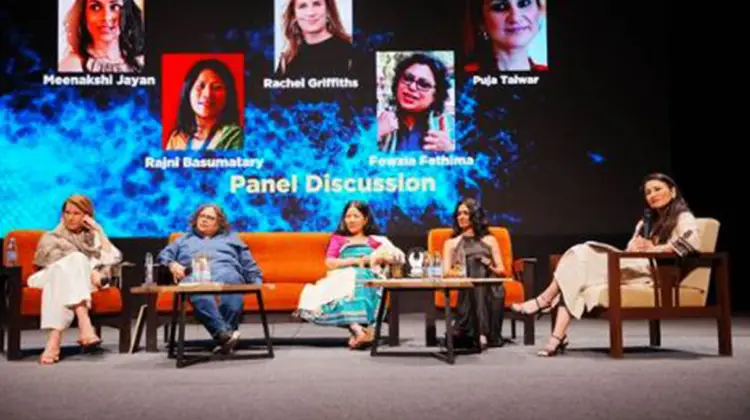A powerful panel discussion at the International Film Festival of India (IFFI) in Goa, titled ‘A Global India Through Independent Cinema: A Women’s Panel,’ featured leading female voices who passionately advocated for greater equity, visibility, and creative autonomy for women in independent cinema. The panelists—actor-filmmaker Rajni Basumatary, cinematographer Fowzia Fathima, actor-filmmaker Rachel Griffiths, and actor Meenakshi Jayan—delved into how women’s unique perspectives are fundamentally transforming the industry.
The conversation centered on empathy as a defining strength of women’s creative processes.
- Fowzia Fathima emphasized that women ground their entire filmmaking journey, from the initial concept to the final shot, in empathy. This approach allows them to elevate local narratives and infuse them with global resonance, according to the festival organizers’ session gist.
- Rajni Basumatary highlighted that women’s keen eye for life’s subtle details and observations enables them to bring marginalized and previously untold stories to the screen.
The panel explored the current state of representation for women in cinema:
- Rachel Griffiths noted a tangible increase in the number of women working as cinematographers and producers in her own industry.
- Fowzia Fathima celebrated the significant growth of the Indian Women Cinematographers’ Collective, which expanded from a handful of members in 2017 to nearly two hundred today. She credited this Collective with fostering crucial mentorship, collaboration, and a supportive environment.
- Meenakshi Jayan pointed to progressive measures, specifically mentioning a Kerala State Government initiative that provides funding for films made by women, which enabled her own film, ‘Victoria’.
- However, Fowzia, who served on the initiative’s first selection panel, raised concerns about the need for continued vigilance against men attempting to submit projects under women’s names to exploit the funding opportunity.
The panelists spoke candidly about the logistical and systemic hurdles faced by women:
- Rachel Griffiths offered practical solutions, such as alternating work weeks, to help women navigate the industry while raising children, sharing her own experience of raising three kids.
- Fowzia Fathima expressed gratitude for being able to successfully resume her craft after motherhood, with a key upcoming project being the commercial movie ‘Train’ featuring Vijay Sethupathi.
- On the issue of pay parity, Rachel stressed that meaningful change requires men to acknowledge the imbalance and actively support initiatives that guarantee fairness for their female colleagues.
The discussion shifted to the expanding creative roles women are assuming:
- Meenakshi Jayan noted the initial lack of freedom for newcomer actors to choose collaborators, expressing a desire to work with more women filmmakers as her career progresses.
- Rajni Basumatary observed that the rise of OTT platforms has led to an expansion of deeper, more substantial roles for women actors.
- Fowzia Fathima added that more women actors are taking the leap into production, thereby increasing the number of female creative decision-makers.
- Meenakshi articulated her ambition to produce films, while Rachel acknowledged the historical presence of women producers in Hollywood and the continued hurdles they face.
Rajni Basumatary spoke of grounding her writing in local realities and the generational pain of her region, with her most recent film featuring an all-women cast to explore gender justice. Meenakshi’s film ‘Victoria’ was similarly built around an all-women cast—a creative choice that was often questioned simply because it deviated from industry norms.
As the session concluded, the spirit of collaboration and future vision was high, with Rachel suggesting the four women on the panel could one day collaborate—a perfect embodiment of women imagining new cinematic futures together.
Key Highlights:
- A panel of four leading women filmmakers at IFFI—Rajni Basumatary, Fowzia Fathima, Rachel Griffiths, and Meenakshi Jayan—called for greater equity, creative freedom, and visibility for women in independent cinema.
- The panelists defined empathy and a keen eye for detail as the defining strengths of women’s filmmaking, enabling them to transform local, untold stories into narratives with global resonance.
- They celebrated the growth of women’s networks like the Indian Women Cinematographers’ Collective and progressive government funding initiatives (like Kerala’s support for women-led films), but emphasized the ongoing fight for pay parity and the need for vigilance against systemic bias.
- The discussion highlighted women’s expanding roles from actors into producers and the creation of more substantive roles via OTT platforms, fostering a movement toward all-women cast and crew projects.


